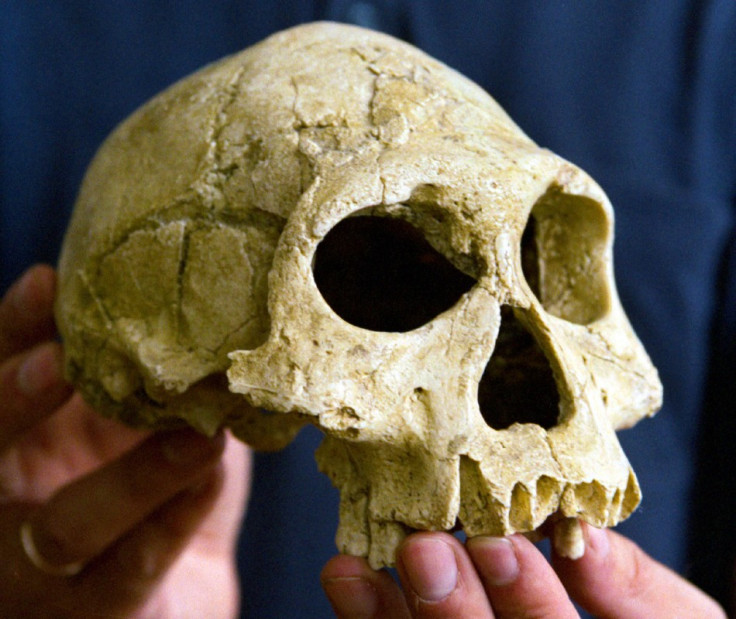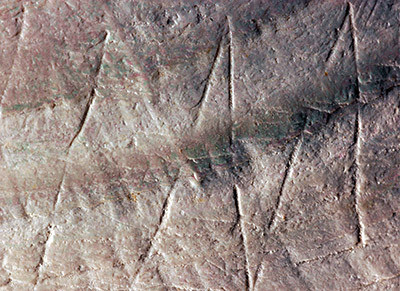Homo erectus artwork? 500,000 year old engravings discovered on Indonesian shell

Engravings discovered on a shell believed to be made by the earliest ancestors of human beings have been dated by scientists at almost 500,000 years old – more than four times older than any engravings previously discovered.
Research was carried out etchings made by a Homo erectus on a mollusc shell, which was unearthed more than 100 years ago on the Indonesian island of Java.
"Until this discovery, it was assumed that comparable engravings were only made by modern humans - Homo sapiens - in Africa, starting about 100,000 years ago," said Jose Joordens, researcher at the faculty of archaeology at Leiden University, which led the investigation.
A small zigzag pattern appears on the shell when it is held under oblique lighting which outdates any weathering process.
The shell was being held in the Naturalis Museum in Holland where it had been since the 1890s.

The shell in question and a group of other finds were studied by 21 researchers, but they say they have no idea what the drawings mean yet.
Wil Roebroeks, professor of Palaeolithic Archaeology at Leiden University, said: "It's fantastic that this engraved shell has been discovered in a museum collection where it has been held for more than a hundred years. I can imagine people may be wondering whether this can be seen as a form of early art.
"At the moment we have no clue about the meaning or purpose of this engraving."
By applying two dating methods, researchers from Wageningen University and VU University Amsterdam estimate that the carvings in the mollusc shell date back to somewhere between 430,000-540,000 years ago.
It also opens up new questions regarding how far our bodies have evolved since Homo erectus, which became extinct around 150,000 years ago.
Frank Wesselingh, a researcher and expert on fossil shells at Naturalis, said: "The precision with which these early humans worked indicates great dexterity and detailed knowledge of mollusc anatomy."
© Copyright IBTimes 2025. All rights reserved.






















